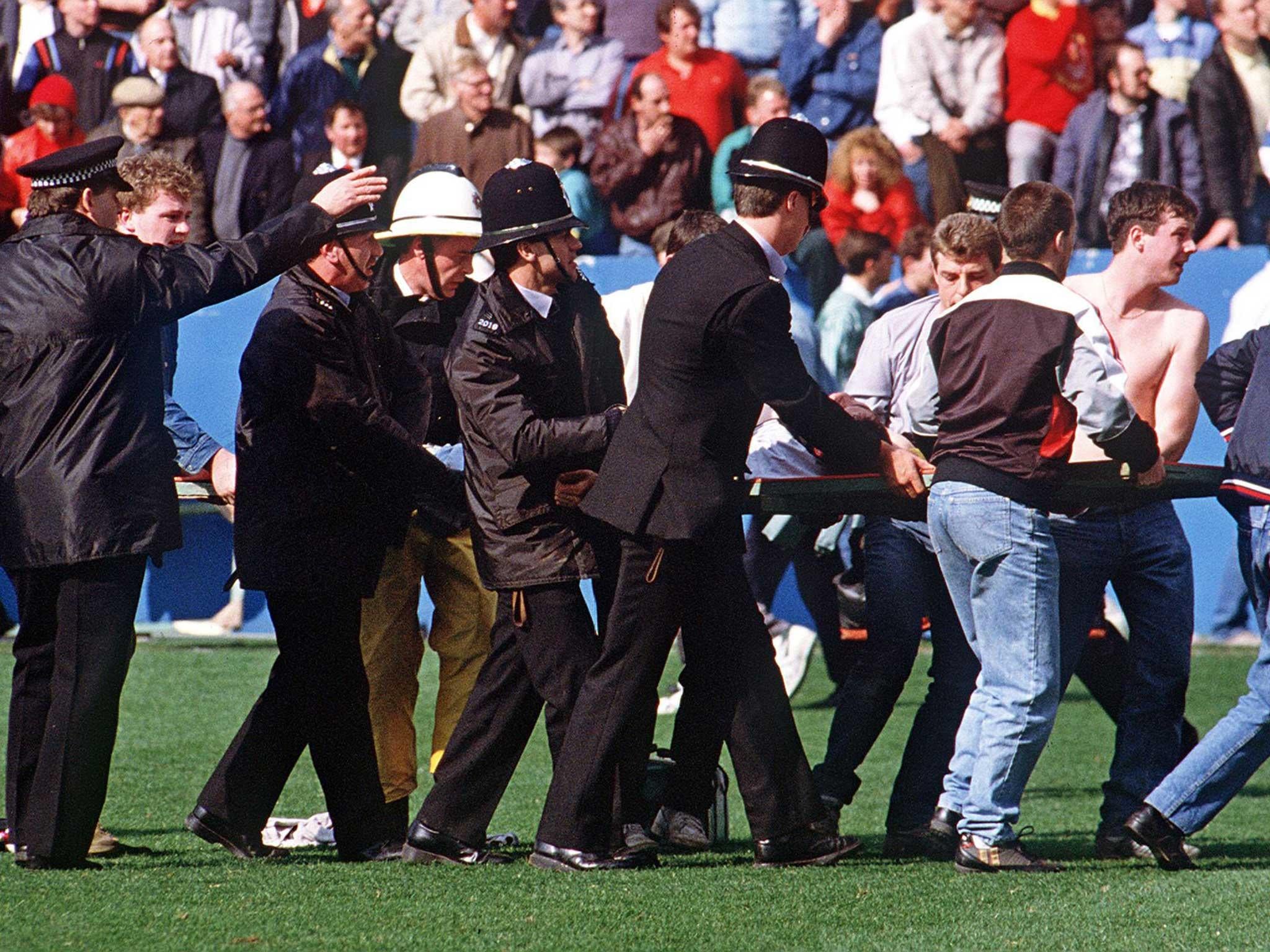Hillsborough disaster: South Yorkshire Police 'tried to spin inquest reports'
Former employee claims she was asked to emphasise elements of evidence that were positive for the police

Your support helps us to tell the story
From reproductive rights to climate change to Big Tech, The Independent is on the ground when the story is developing. Whether it's investigating the financials of Elon Musk's pro-Trump PAC or producing our latest documentary, 'The A Word', which shines a light on the American women fighting for reproductive rights, we know how important it is to parse out the facts from the messaging.
At such a critical moment in US history, we need reporters on the ground. Your donation allows us to keep sending journalists to speak to both sides of the story.
The Independent is trusted by Americans across the entire political spectrum. And unlike many other quality news outlets, we choose not to lock Americans out of our reporting and analysis with paywalls. We believe quality journalism should be available to everyone, paid for by those who can afford it.
Your support makes all the difference.South Yorkshire Police asked a press officer to "spin" news from the Hillsborough inquests in favour of the force, the former employee has claimed.
Hayley Court told The Guardian she was asked to emphasise elements of evidence that were positive for the police, including poor behaviour by Liverpool fans at the 1989 stadium disaster.
A second inquest that concluded last month found that the 96 fans who died were unlawfully killed and that blunders by the police and ambulance service on the day "caused or contributed to" the disaster.
Ms Court, 30, claims that from her first day at the force, after being headhunted to work as a £50,000-a-year specialist press officer for the Hillsborough inquests, she was expected to be a "spin doctor".
She had intended to write objective daily reports and prepare for the conclusion but felt that her instructions on how to guide the media were "unethical".
Ms Court said she was told: "Your job is to round up the media at the end of the day and tell them: 'This is the line."'
The "line" was to emphasise evidence that portrayed South Yorkshire Police in a positive light or suggested that supporters misbehaved, she claimed.
She added: "I took that as being told my job was to tell the media what they would be reporting, which isn't ethical or even possible to do."
Ms Court said that as the force had already made a full apology in 2012, it should not have tried to pass the blame on to others or influence the media.
The former journalist was later signed off sick with depression and in a performance review in November 2014, Carrie Goodwin, the South Yorkshire Police head of communications, said: "Hayley disclosed that she felt she had been asked to act in an unethical manner in that she should coerce the media."
But she said Ms Court had been asked to encourage the media to report on both the positive and negative from the inquests.
In a statement given to the BBC, South Yorkshire Police said it was aware of Ms Court's concerns and would welcome the chance to talk them through.
It added: "Some of the issues raised have been considered before through the force's grievance procedure. Specifically in relation to the concerns raised about suggested unethical practices, but these were not substantiated at the time.
"However it is clear that the staff member remains concerned about her experiences and following the outcome of the Hillsborough inquests, and we would like to talk to her and give these matters further consideration."
Press Association
Join our commenting forum
Join thought-provoking conversations, follow other Independent readers and see their replies
Comments